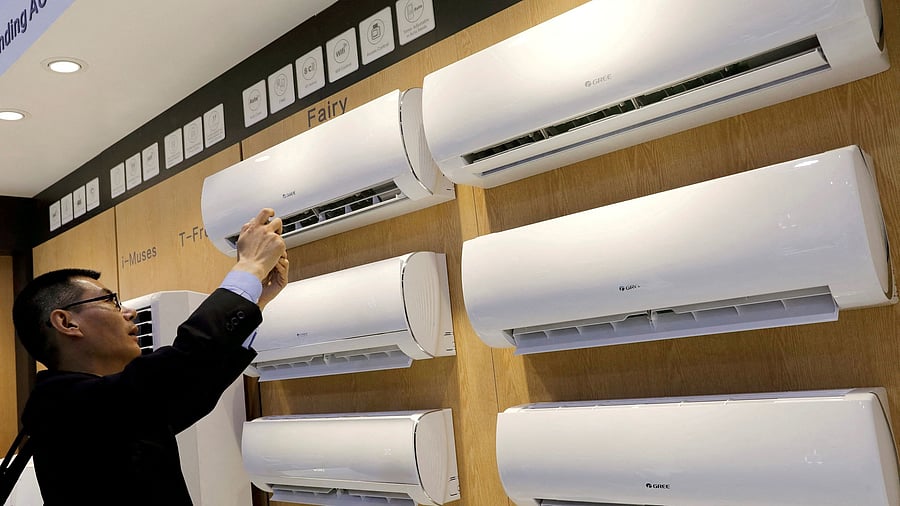
A visitor takes a photo of air conditioners.
Credit: Reuters Photo
New Delhi: The Power Ministry is working on implement a new standard temperature range for air conditioners across the country.
“We have decided the minimum temperature of ACs will be fixed at 20°C and maximum at 28°C across all sectors — including cars — amid rising temperatures due to climate change and increasing use of cooling systems,” Union Minister for Power, Manohar Lal Khattar said.
The new rules aim to bring uniformity to air conditioning use and help reduce excessive power consumption due to extremely low cooling settings, the minister said. The implementation will be rolled out soon, he added.
The revised limits are part of a larger policy framework aimed at improving residential and commercial energy efficiency and reduce electricity bills, the minister said.
In India, ACs often operate below 20°C whether is in homes and offices, which leads to higher energy use.
If the new rule get implemented, then the ACs which currently go till 18°C (or 16°C in some ACs) and up to 30°C will get restricted to 20°C for the lowest possible temperature and 28°C as the highest temperature.
As per the Bureau of Energy Efficiency (BEE), most ACs are set between 20°C and 21°C, but the ideal comfort range is 24–25°C.
Raising the temperature from 20°C to 24°C can result in around 24% power savings, while each 1°C increase can save about 6% electricity.
If half of India’s AC users adopt this change, the country could save 10 billion units of electricity annually, cut Rs 5,000 crore from electricity bills.
